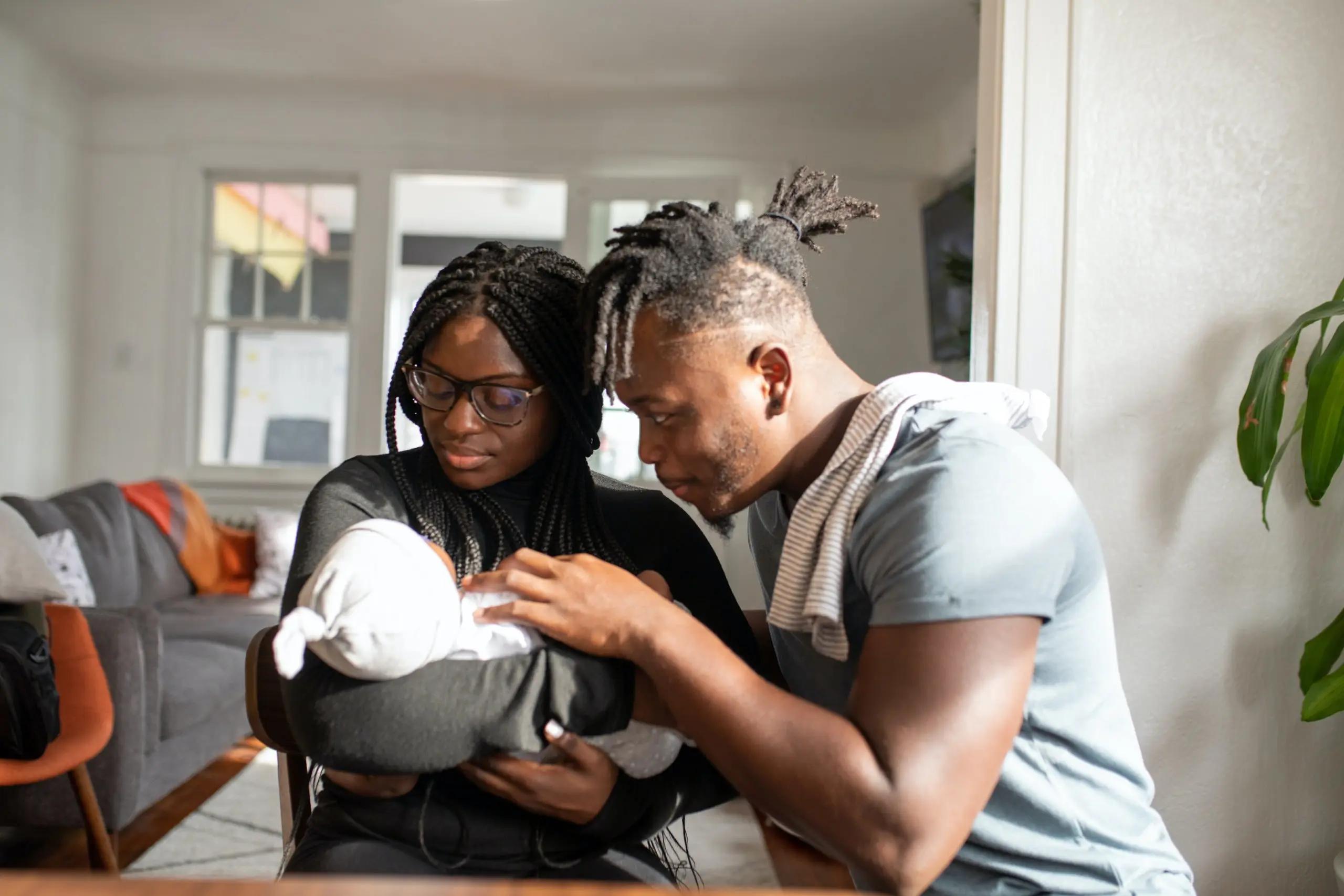Videos of Black bodies being abused by those meant to protect us, laws passing in an effort to silence history, and daily microaggressions are just some of the realities facing Black America.
Meanwhile, anxiety, depression, and suicide are on the rise, while barriers to accessing mental health care have stopped many from getting the help they desperately need.
These are the realities facing Black America.
I’ve seen how mental illness impacted my friends and family, and I remember how powerless I felt in not knowing how to help. I reached out to Black therapists hoping that their thoughts and perspectives on issues facing our community will lead to healing and support for people who often feel alone in their mental health struggles.
Barriers Facing Black Mental Health Seekers
First, it’s important to touch on the obstacles that often hinder Black people from better managing their mental health. This quote from an Alma therapist offers an opinion on some barriers facing Black mental health seekers:
“Finding culturally competent therapists, which is a call for therapists to continue to learn and listen to be of service to Black people seeking therapy. Also, some Black people may be limiting their therapeutic process by not being open to working with a culturally competent non-Black therapist when they are unable to find a therapist that shares their racial or ethnic background.”
Finding a therapist is hard enough, and this process is especially difficult when searching for someone that understands and acknowledges your cultural customs, beliefs, and values.
Speaking from my own experience, a benefit of having a culturally competent therapist is not having to explain certain lived experiences that come with being a Black man. Whenever I touch on a story that involves my race, it makes me feel comfortable knowing my therapist understands where I’m coming from without me having to over-explain or worry about being gaslighted.
This makes it easier to show up as my authentic self during therapy and works to build a more personal, intimate experience that allows me to open up better. And aside from cultural competence, stigma and distrust serve as obstacles as well.
“With good reason, black people do not trust the medical industry in America. There is also the stigma of having “something wrong mentally.” However, with the emotional and physical traumas we as a people have been subjected to we need to seek help and that help needs to start looking more like us.”
Due to historical traumas stemming from instances of medical experimentation, abuse, and neglect, Black Americans can be skeptical of some healthcare practices. For reference, examples of past traumas include the Tuskegee experiment, the troubled legacy of Dr. J. Marion Sims, and invasive procedures performed on Henrietta Lacks.
The stigma and judgment attached to seeing a clinician also serves as a deterrent. People can feel like therapy is an admission of having a poor upbringing, which can reflect negatively on one’s family. In my own life, I’ve heard relatives say they felt offended after hearing their child was seeing a therapist. They saw it as direct criticism of their parenting skills and ability to raise children – which is unfair and lacks empathy for loved ones working towards happiness and fulfillment.
“There’s a lack of accessibility due to a lack of affordability – and inadequate or no insurance at all.”
You can’t forget about the cost of uninsured care. The uninsured rate for Black Americans is 12%, compared to 9% for White Americans. And with a large economic disparity existing between races, many Black people don’t have the extra income to spend on therapy.
Personally, I wasn’t in a position to pursue therapy until I graduated college and found a well paying job that offered health insurance. Before then, I was mostly on my own in regards to my mental health. A sentiment that I’m sure is shared throughout my community.
Questions to Gauge a Clinician’s Level of Cultural Sensitivity
With insight on areas stopping Black people from pursuing care, let’s examine some questions that can help mental health seekers find a culturally competent therapist. These questions all come recommended by Black therapists.
“Ask them if they’re familiar with your background and identity; ask if they are collaborative in their treatment framework; ask them about the range of identities and cultures they’ve worked with in the past or are currently working with.”
“Do you see color as far as race? What trainings, readings, or things have you done to reflect on your own cultural sensitivity? What is your comfort level when it comes to talking about topics such as white privilege, racism, discrimination, or systemic oppression? What is your experience when it comes to working with black clients (or specific thing)”
“Do you have experience in Microaggression? What is your experience in dealing with racism in the work place? Have you helped someone who dealt with cultural insensitivity in their family?”
“How does your education and training equip you to address my areas of concern with consideration for race, class, gender, sexual orientation? What experience do you have working with clients of color and marginalized populations? How does your worldview impact and influence your treatment modalities? What does culturally competent treatment look like to you? How do you handle topics of systemic racism, privilege, oppression, and discrimination as they present themselves in therapy?”
Barriers Facing Black Therapists
Of course, I can’t talk about Black mental health without touching on the challenges Black therapists face. These clinicians are trusted to provide culturally competent, specialized care while facing a myriad of obstacles themselves. Listen as they explain some of their biggest issues.
“One of the biggest issues facing Black therapists at this time is the attempt to understand their own emotions, feelings and thoughts regarding the black experience while trying to help others sort through theirs, without counter-transference or personal trauma interfering coming up for them. At this time, the black therapist is learning how to observe their own emotions/traumas that come up for them in session while working with clients to heal from their own.”
Countertransference describes the psychological phenomenon where a therapist may unconsciously project their feelings on an interaction with a client during therapy. Providers are still people, and they have experiences and preferences that can lead to biased or emotionally-charged treatments for clients.
Examples of countertransference include:
- Discussing too much about themselves in a way that doesn’t benefit the client
- Pushing the client to take action before they’re fully prepared to
- Being to overinvested in a particular outcome
- Not having adequate boundaries with the client
- Increasing/ decreasing the session time beyond what’s helpful
“Lack of resources to build their practice so that they can increase accessibility to therapy. I’ve had clients who are in the middle of trauma work, they’re healing, then suddenly they lose insurance or their insurance change and they can no longer afford to continue therapy. Clients become disconnected and depressed. Black therapists need resources to allow them to give therapy subsidies or offer pro bono work.”
This quote represents a reality for many mental health providers. Economic inequalities rooted in racism means Black providers often have a harder time building up their practice to the point where they can easily increase accessibility.
And the gap in Black and white unemployment is an ongoing deterrent for Black Americans hoping to afford treatment through health insurance. A national focus needs to be put on resources for Black mental health so providers have an easier time increasing accessibility for clients.
Methods for Incorporating Cultural Sensitivity into your Practice
I sought advice from Black clinicians on past methods they’ve used to incorporate cultural sensitivity into their practice. People should work to recognize some of these methods to better grasp what a culturally competent therapist looks like.
“I am collaborative, I recognize the diversity within the Black community and avoid a one-size fits all approach and avoid explicit cultural tailoring since this can be offensive to some. However, as a member of the Black community, I center their lived experiences and allow my clients the space and time to express themselves in their own way. I validate and affirm their experiences.”
“1. I incorporate cultural questions by asking about their cultural practices and experiences and don’t assume everyone has the same outlook and experiences as myself even with us sharing some commonalities. Asking things like what kind of things did your family or culture do to help with the things you are experiencing, etc.
2. I don’t just use EBM and don’t subscribe to only sticking to that because those don’t always fit for us. Could you imagine I use cognitive distortions to explain away someone’s experiences with race?
3. I explore and discuss generational trauma, specifically with my black clients, and discuss some of how the chattel slavery and things we do are still with us to this day. I think it’s important to explore those things as long as clients are interested in it.”
“Centering the client’s identity and lived experiences when addressing mental health concerns; encouraging clients to be their true selves in therapy and honoring all parts of their identity; continuing to recognize that even when I share the same background as a client, our lived experiences may not be the same, so I always enter the therapeutic alliance without judgment to ensure that the client feels validated and seen in order to foster an environment that begins the healing journey.”
“The three ways in which I include cultural sensitivity into practice is via the intake process, staying knowledgeable regarding my knowledge of media cases that are triggering or hurtful to the BIPOC populations, and by leaning into the stories of my client’s lived experiences within our counseling sessions.”
Resources are here to help you
Black people deserve happiness, fulfillment, and peace of mind. Together, we can work to build a better headspace for our people.
No matter your circumstances, there are resources available to those working to improve their mental health. And if you’re searching for culturally competent care, browse our provider directory.




